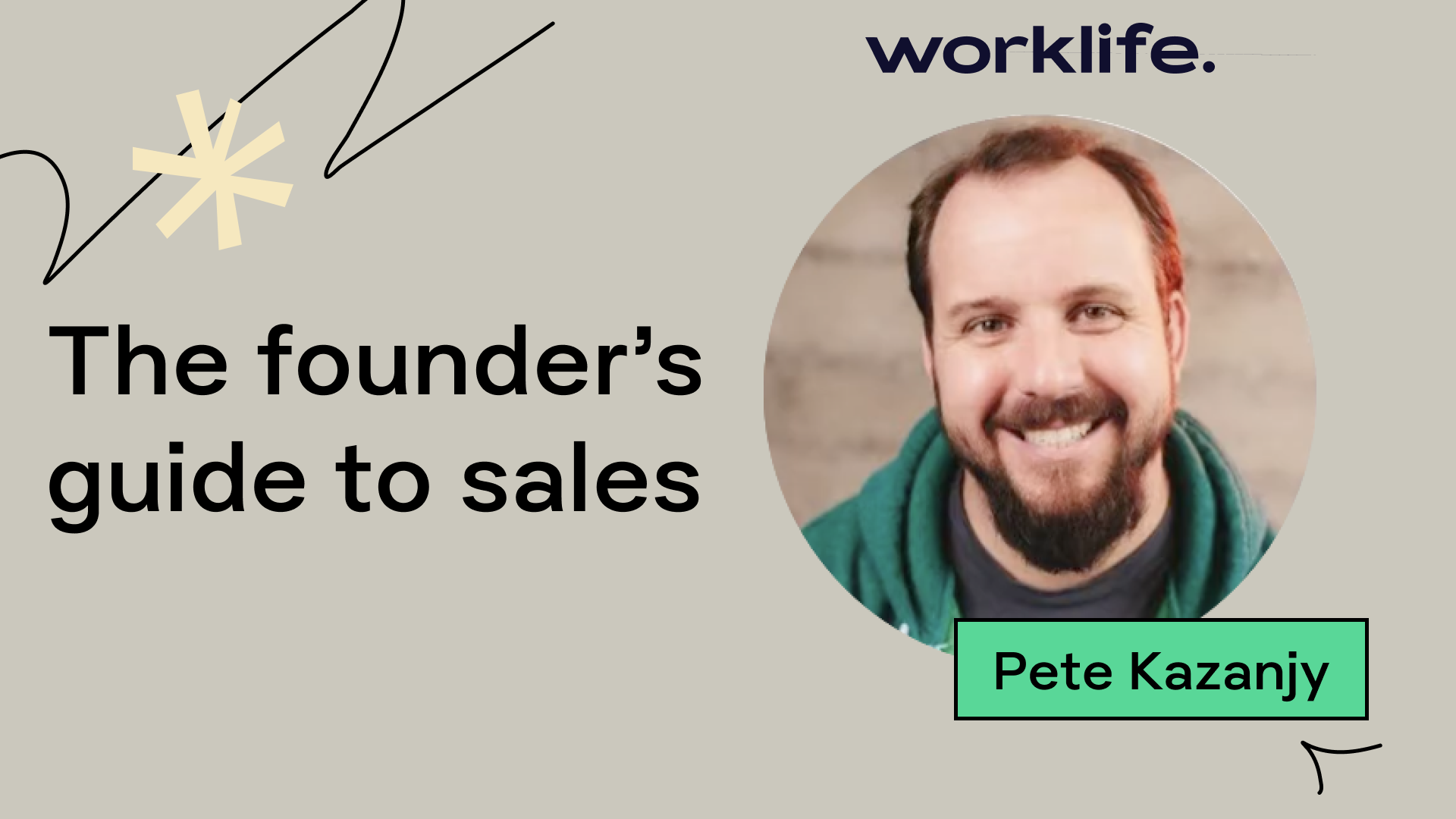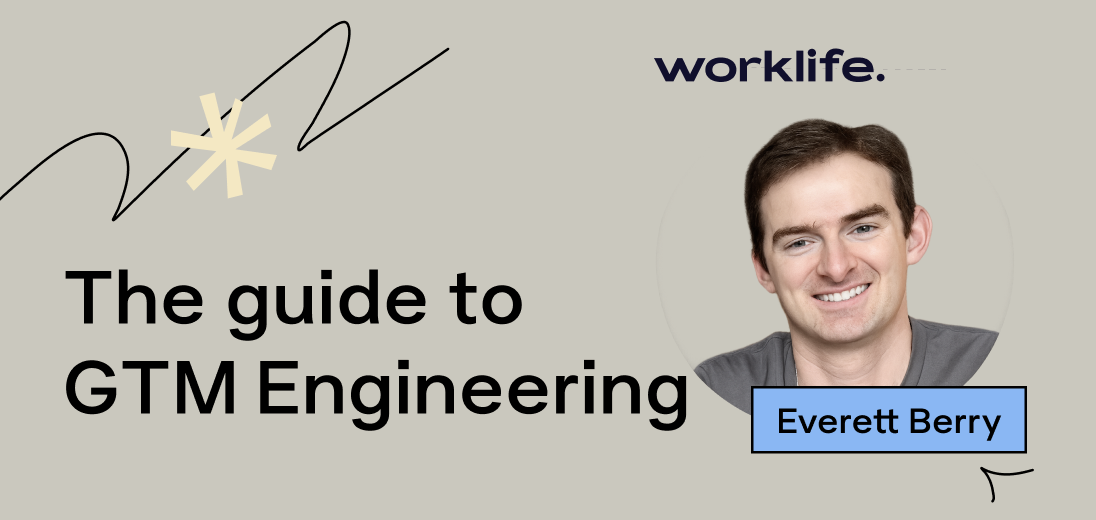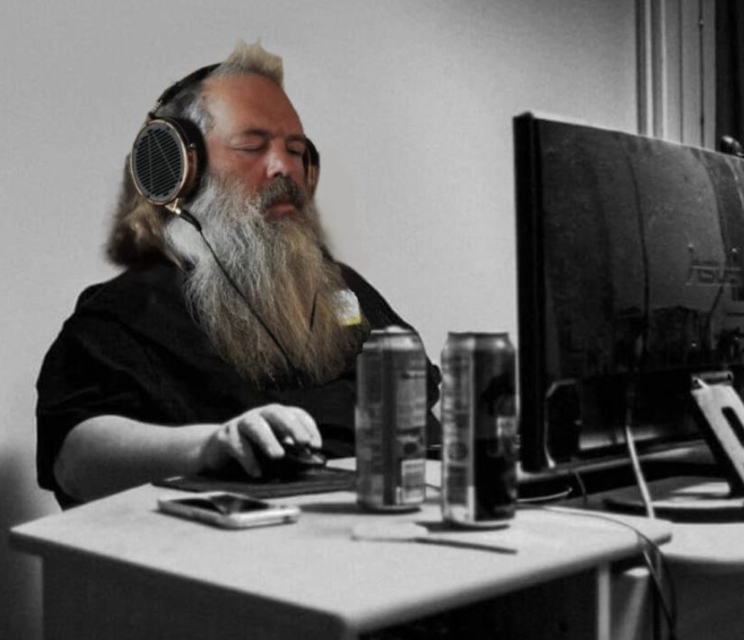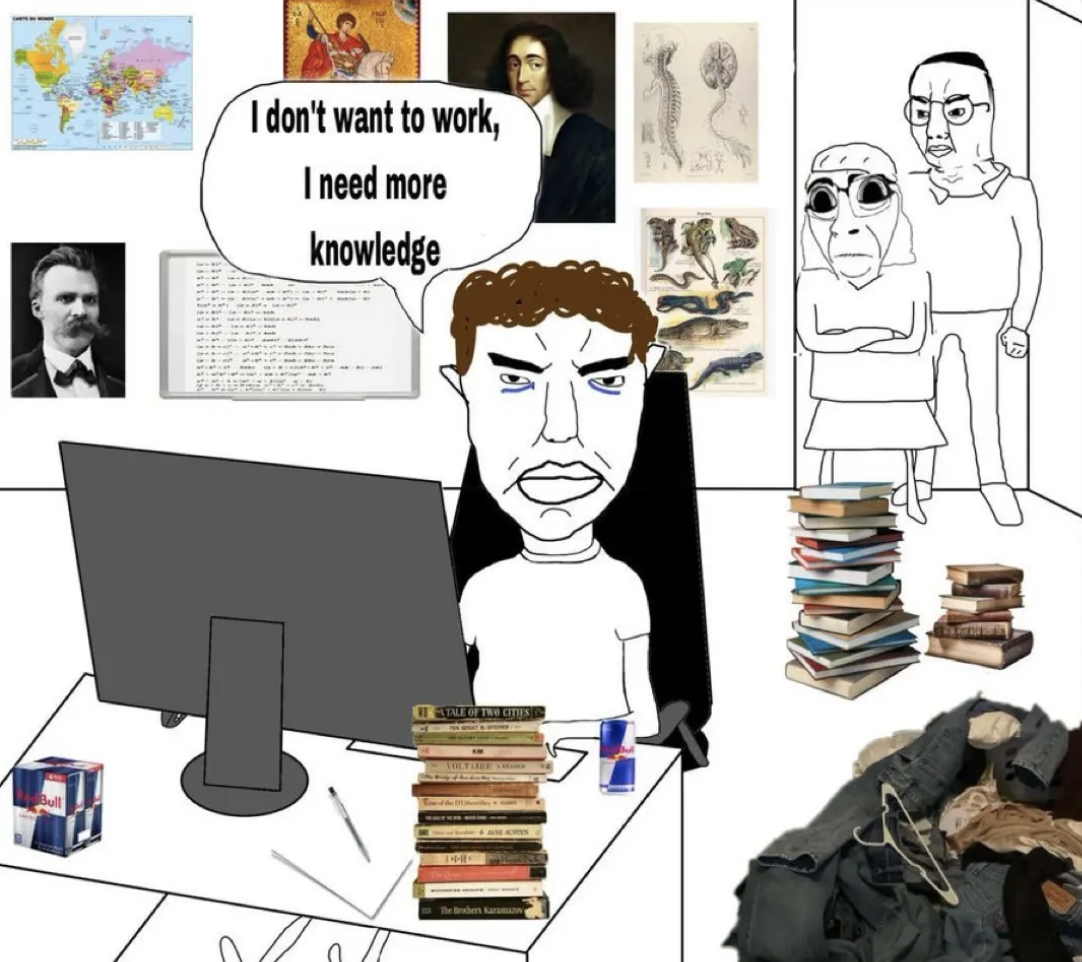We debuted our virtual meeting series Now, New, Next in October 2020. These conversations brought together changemakers across all fields to share wisdom on navigating a changing world. Couldn’t make it? You can access these valuable discussions right on the Worklife site. Today, we’re chatting about acknowledging fear and building the Next Big Thing with:
- Lindsay Pettingill; co-founder & CEO of Ask Iggy
- Avni Patel Thompson; Founder & CEO of Milo (formerly Modern Village)
- Phil Libin; co-Founder & CEO of Mmhmm & All Turtles
- Ben Rubin; co-Founder & CEO of /talk
This group’s wealth of knowledge (and Dune references) will leave you with something to chew on whether you’re joining in the Great Resignation by switching careers, preparing to jump from one startup to the next, or considering founding a company.
Let’s jump in.
Letting Go is the Next Big Thing
Pettingill: When you leave one startup to start another, you're leaving things behind and stepping into new things. What is that journey like? What do you take with you? What do you leave behind?
Patel Thompson: My previous company, Poppy, was a startup making parenting a little easier. It was a two-sided service marketplace that found childcare providers living in our communities and matched them up with families. Over that three or four year journey we did lots of really incredible things. We did Y Combinator, we raised a seed fund, we built an incredible team to solve an incredibly hard problem.
But in venture-backed companies, the path to scale and the path to the economics to make that work is a challenge. It wasn't there in a way that we needed it to be.
So after about three years we made the hard decision to shut Poppy down.
Rubin: Transition between companies for me is a wonderful moment to try not to rush to the next thing. I try to really sit there and index my learning.
What's the Next Big Thing? Intention in Building.
Rubin: If you're a very passionate entrepreneur, probably a lot of your self-worth is built into your image as an entrepreneur. For me, being in between was also a really uncomfortable position. And in this uncomfortable position, you might find yourself jumping into something that maybe is not as thoughtful or not the best. The intention is not there yet.
So what I've done is sit in the office for six to nine months and thought about ideas and tried not to rush into them even if the opportunity was there. I do the work of understanding:
- What is it that didn't work?
- What is it that worked in the past?
- What are the things that I'm learning about myself?
For me, it was an inflection point in being confident in myself and in not knowing.
Patel Thompson. Yes. There was such an aspect of identity from a founder standpoint and for Poppy. For four or five years, I was the founder of Poppy. Some people would even call me Poppy. We kind of melded into one.
After I shut Poppy down, it was almost like the death of a person that remains alive in your heart and your mind. One of the hardest things is that it feels like all the potential of what could have been gets erased.
I knew I wasn't ready to start a new company or create the next big thing until I got obsessed with a problem again. It’s such an important point to make sure that you're really ready. For me, that meant being obsessed with an idea that I couldn't get out of my head.
How to Scale Your Second “Next Big Thing”
Pettingill: Can folks talk about how you approach the path to scale differently the second time? What lessons seemed very clear in retrospect?
Libin: I think my career trajectory is moderately impressive at best. But I'm on my fifth startup. I probably felt like I knew all sorts of things from my first startup that I learned that I applied to a second one, but now that I’m on number five, it all kind of runs together.
Let's say you're a skier. Right?
So you're skiing and you're Olympic level in your twenties and everyone kind of knows that you're damaging your knees. It's a risk worth taking, but like no one expects you to be skiing as hard when you're 50. No one is like, well, now you've been skiing for 30 years. You've got 30 years experience. People understand that, like your knees are hardware. You've got a lot more experience skiing, but one's going to expect you to be able to do the same things as you did in your twenties.
And I think people view knees as hardware but the brain as software. A lot of people think that if you were starting companies in your twenties, you must be so much more experienced by the time you’re 50. It must be so much easier. But it's not. It's harder—just like it would be if you were skiing—because all of the accumulated damage that you do to yourself adds up.
Your brain is no more software than your knees. They're both just as prone to damage.
I think many of us creative entrepreneurs learn a bunch of really bad lessons in our twenties. And we don't reevaluate to think of this as a physical activity.
I wish I had it figured out earlier that this takes a toll, and you’ve got to think about how you're going to take care of yourself so that you can do this for decades.
I don't think I started thinking about that until it wasn't until I was into my forties. Better late than never, but it should have occurred to me in my first, my first startup.
BetterUp CEO Alexi Robichaux is a rare example of someone who did figure this out young. Read his story here.
Patel Thompson: With Poppy, it took me a while to realize I was doing very unhealthy things for myself, for my relationship, and for my kids, because I was so:
- Shocked that we got to some semblance of product market fit
- Committed to hanging and making it work
- Convinced that what I was experiencing was how starting a startup is supposed to feel.
This time I’m a lot more intentional. I know that this is going to be a marathon, so how are we going to pace ourselves and avoid employee burnout?
What is The Next Big Thing? Just Going For It.
Pettingill: I talk to a lot of aspiring founders and many say “I'm not ready.” When you ask “what would it take for you to be ready?” most of them don't know.
I think they're touching on something that we're talking about here: no one really knows how to do this right. And doing it in a healthy way is even harder.
So I'm curious, can folks share some of these specific things that they wouldn't do again when building the next big thing?
Rubin: I think that the journey of building the next big thing is a relationship with oneself. When you first get something that is working, you find that because of your lack of experience you become more reactive and short term. You lack the confidence to believe in yourself.
I’m not talking about the self-belief that comes from repeating a mantra. I’m talking about what comes from having actually seen yourself do this thing. That’s something you cannot teach unless you go for it.
Good People Are The Next Big Thing in Tech
Pettingill: Identity can be anchored by a startup. It can be anchored by values. It can be anchored by the people we surround ourselves with. So I'm curious to hear from folks about values they carry with them from one experience to the next?
Labin: I will only ever work on something that I believe is good for the world.
Otherwise it's just pointless. It's so hard to build the next big thing in technology. That's why I couldn't motivate myself to do it unless I thought it was something really exciting and worthwhile.
But values by themselves are empty. They're embodied in people. So being able to actually have a consistent throughline of people has been super important.
I started my first company with some friends from college and then some combination of that has been the common string through every other company and has affected company culture. We pick up some new people in orbit each time. You lose some people. But some of the people who were there from the beginning are still there five years later, which is great. I've tried to do that intentionally.
The third best piece of CEO advice that I've ever heard was from Steve Ballmer when he was CEO of Microsoft. They key points of what he said are:
- Everyone gets about a hundred people, maybe 50, that are the load-bearing people in their lives.
- Hopefully you work with and run companies with a bunch of these people.
- Once you know them, you’re full. You're not going to make any new ones.
- Many people burn through these slots really fast.
- Be mindful about who this orbit is for you. Try not to waste those slots.
Pettingill: Phil, you hit the nail on the head. People are a value, right? So what is it that folks should look for in these people that we surround ourselves with? How do you identify these people in your life?
Rubin: I definitely went through some of the slots that Phil is talking about during my first startup in Israel. Then I moved here and started basically from zero.
I look a lot for:
- Reflection
- Thoughtfulness that is not defensive
- Ability to engage and conduct a self-aware conversation
When you start building today’s next big thing, it’s easy to find yourself looking for a specific skill. That's very important, but it's not as important as the ability to have a productive conversation when things are not exactly the way you thought they are.
To Build the Next Big Thing, Move Through Fear.
Pettingill: We have a couple questions from our viewers now:
- How do you manage your fear as you build platforms that are the next big thing in technology?
- For founders building products in industries different from their areas of expertise, how do you level up?
Patel Thompson: As a non-technical solo founder that did not come from tech, I would say that you just can't concern yourself with everything.
You have to figure out how to look at the one step in front of you. There’s also the question of prioritization because there's always 15 different steps that you could take. I've had to figure out what's the thing that's going to kill me next. Then I go tackle that one thing and don’t worry about all the other things.
If you look at the overall mountain you're about to climb, it can be really daunting. But if you look at the first step, it’s actually quite reasonable.
I also think there's a tendency for folks to feel like if they don’t know something, they should hire someone to do it. But, if you don't know something and it’s critical, you need to learn it to a sufficient degree so that you can get somewhere successful and then figure out what you should be hiring for.
I had to teach myself a lot of different things:
- Labor law
- Finance
- Coding
I'm a better partner now because of it.
Pettingill: The theme of fear is never going to go away, right? I feel like that's a big takeaway from today. The point is to not get rid of fear, the point is to manage it.
Labin: In all seriousness, for years I have been reciting the Bene Gesserit "Litany Against Fear" from Dune:
I must not fear. Fear is the mind-killer. Fear is the little-death that brings total obliteration. I will face my fear. I will permit it to pass over me and through me. And when it has gone past, I will turn the inner eye to see its path. Where the fear has gone there will be nothing. Only I will remain.
Everyone should read this continuously if you're going to start a company or build the next big thing in tech. It's probably the best thing written on the subject.
The point is that the dumbest thing you can be is fearless. You have to acknowledge that fear exists. You have to let it pass through you and then you have to do the right thing anyway, regardless of if you're afraid or not.
Impact is the Next Big Thing in Technology
Pettingill: Here’s our last audience question: As a newbie in this space, I've held myself back on entrepreneurial ideas because of the fear of how hard it is to sustain a business. What advice would you all give someone related to business sustainability?
Labin: My friend and former partner at General Catalyst, Hemant Taneja, wrote the book Unscaled about this. His main thesis used to be that companies had to get big before they could have impact. Now he says that's flipped. You can make a difference first, and then you can decide whether or not you want to scale or continue.
And I think this is the best news for doing a startup in 2020 versus 10 years ago. Now, we analyze and measure impact. Then we ask:
- Are we the answer to an important question for at least somebody?
- How do we become the default answer for 10, 100, 10,000 and even a billion people?
- At what point do we want to stop?
Not everything ought to be a multi-billion user unicorn. But everything has to have impact. So I would flip that question around. Forget about how long you can survive. Forget about how big you can get. Focus on having an impact on somebody for something important. ∎
Enjoyed this conversation? Also check out:
- How to Raise Capital for a Startup (Without VC)
- These 5 Black Women Became Entrepreneurs During the Pandemic. They’re Thriving.
- Shifting the Future Through Inclusive Design
- 3 ways to activate any value add investor
- Got Your AI Avatar? Here’s How AI Art Generators Work






